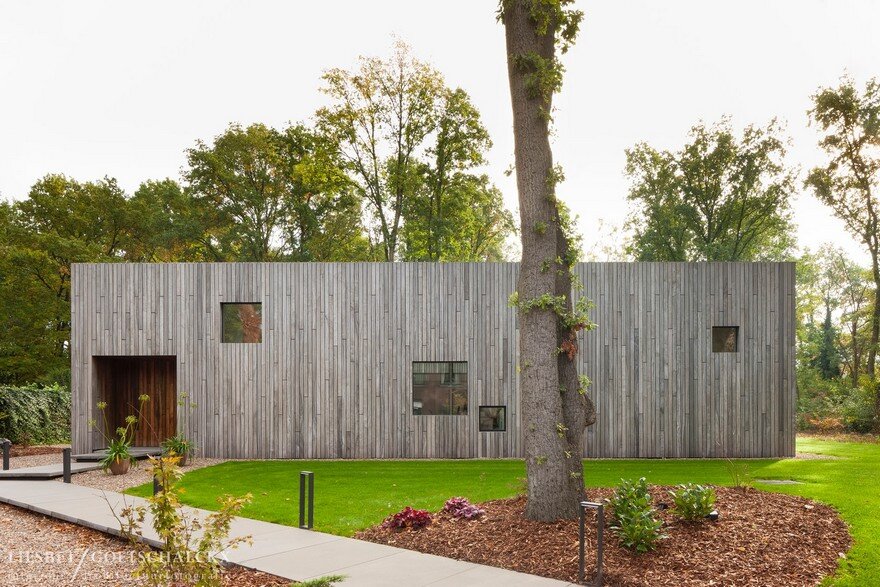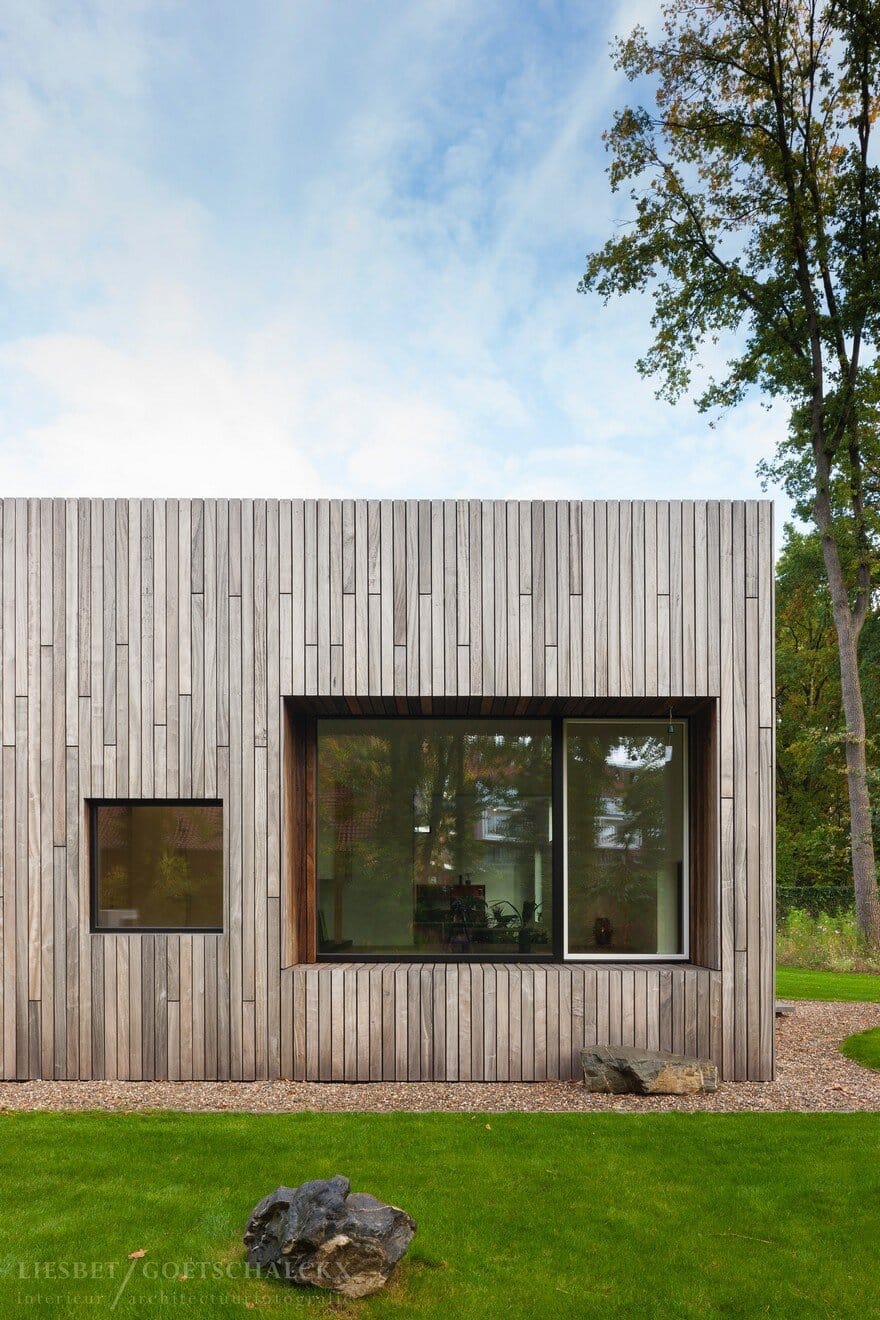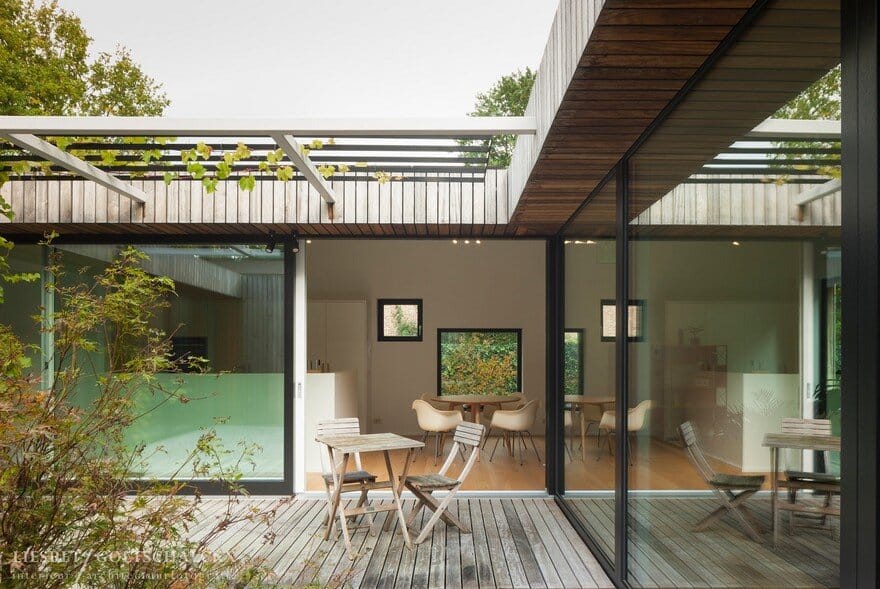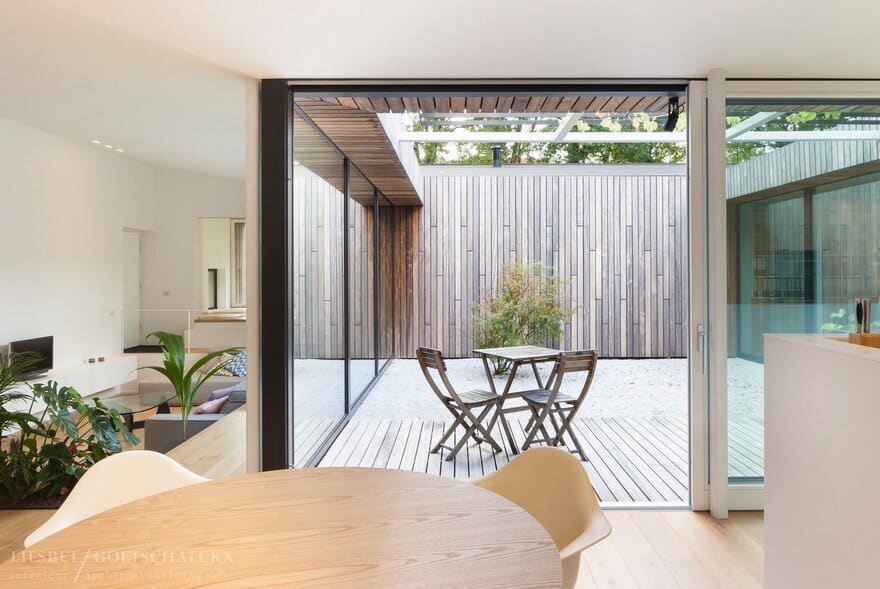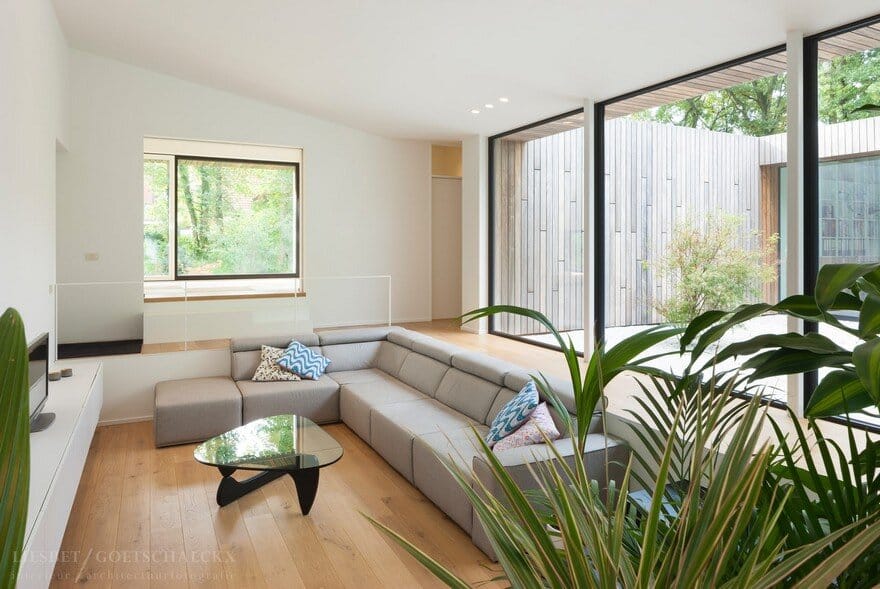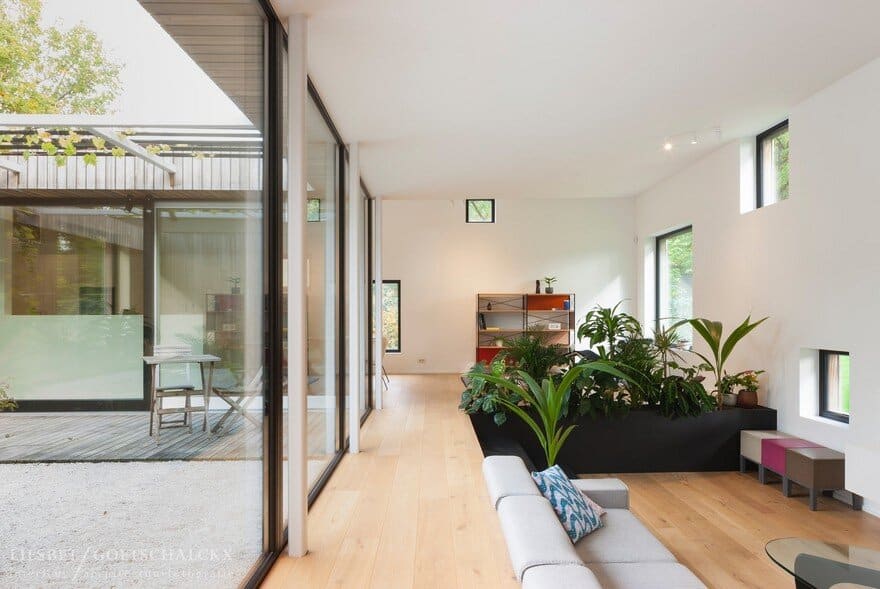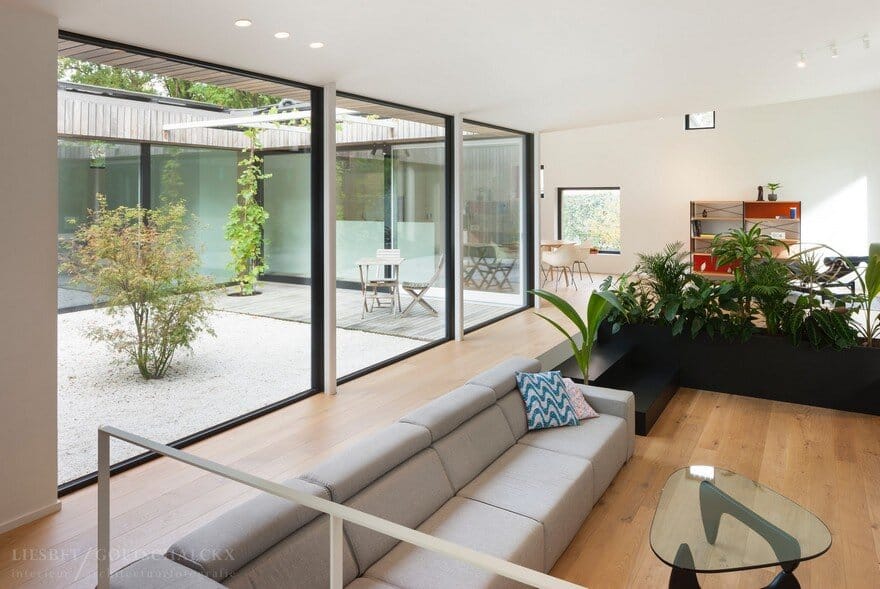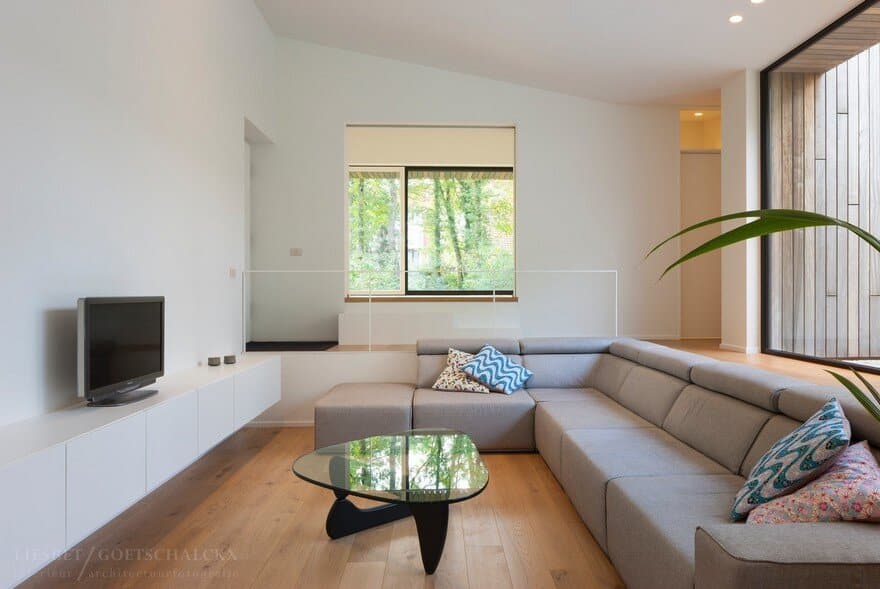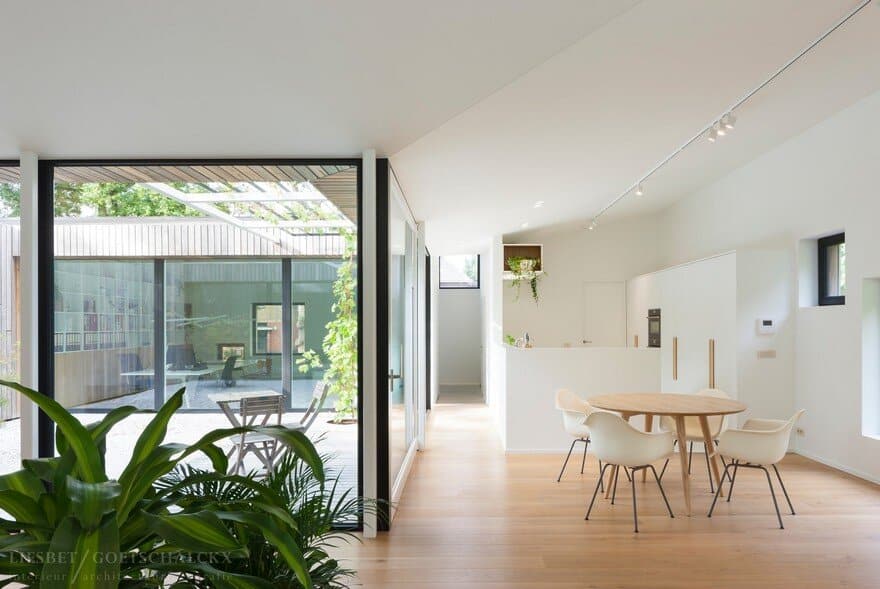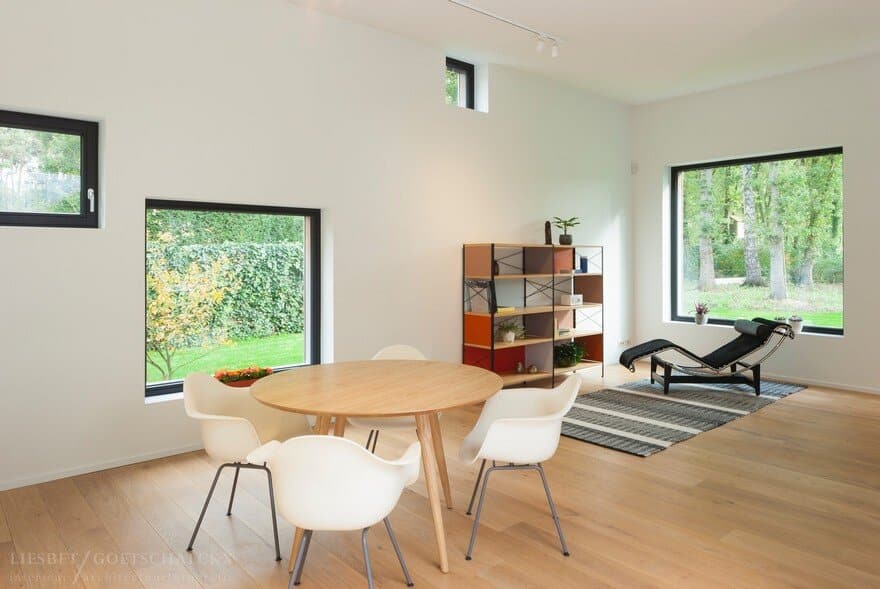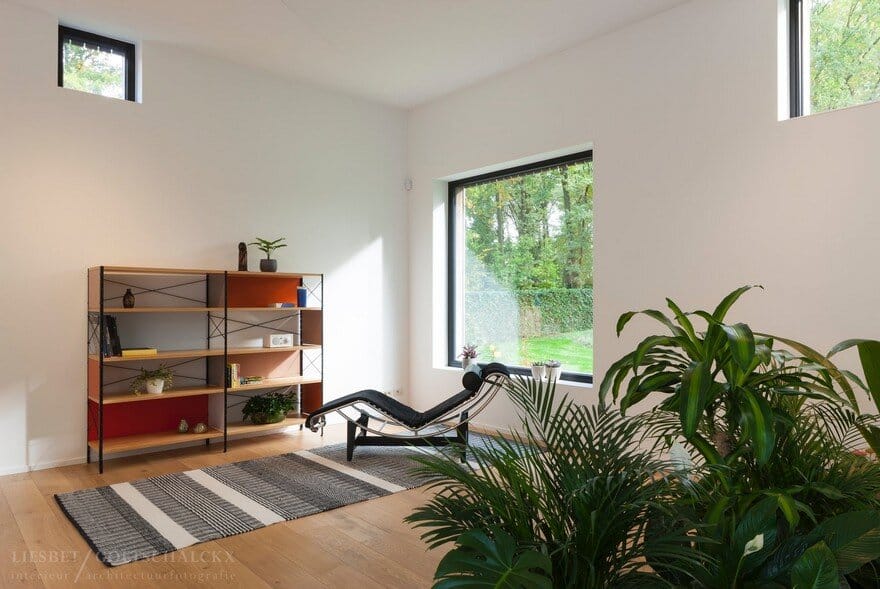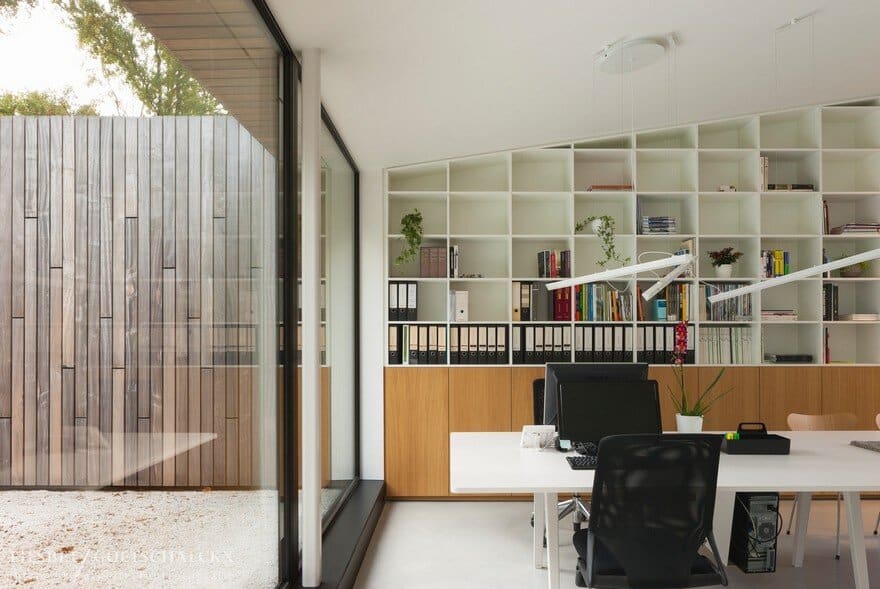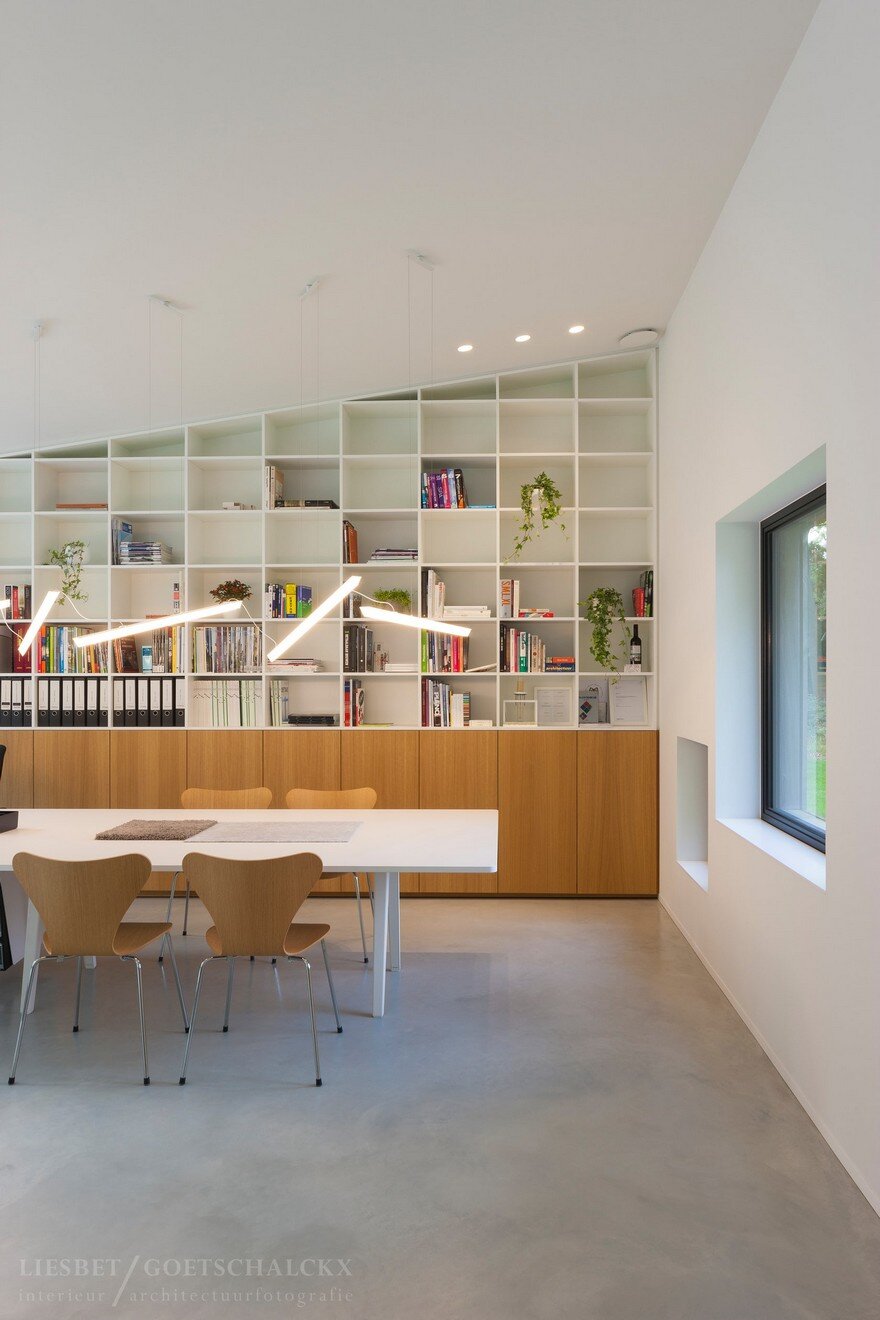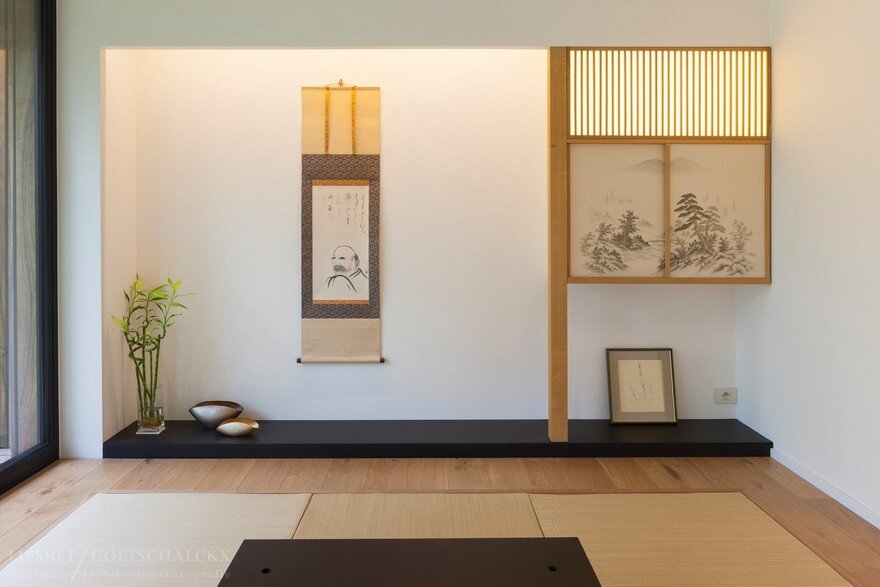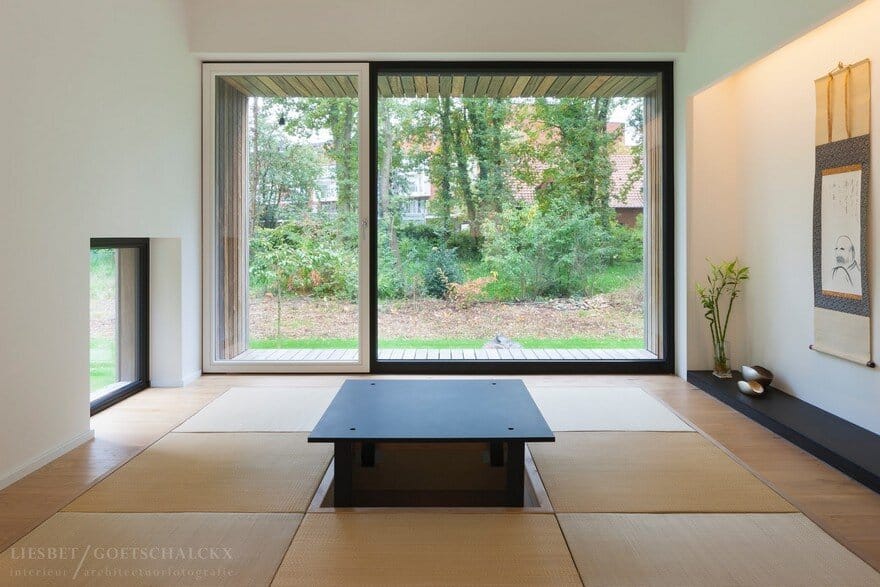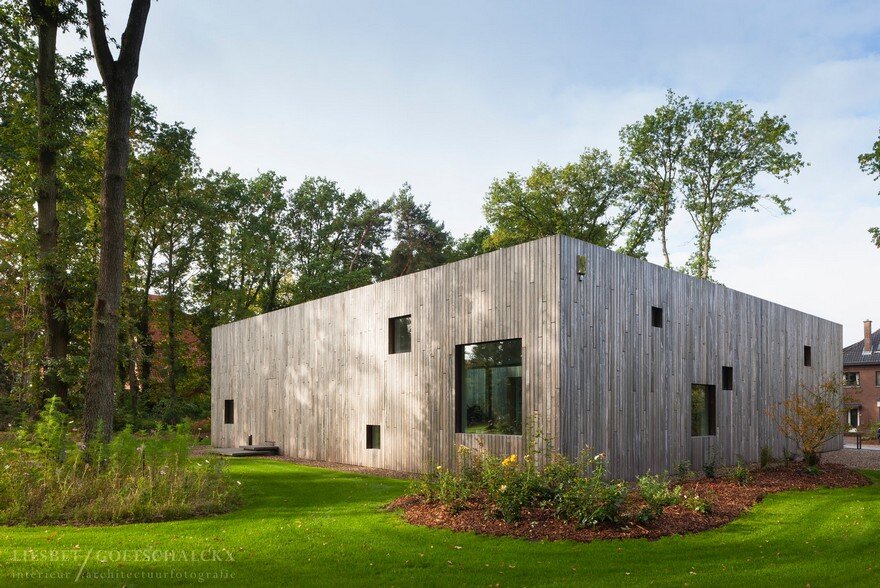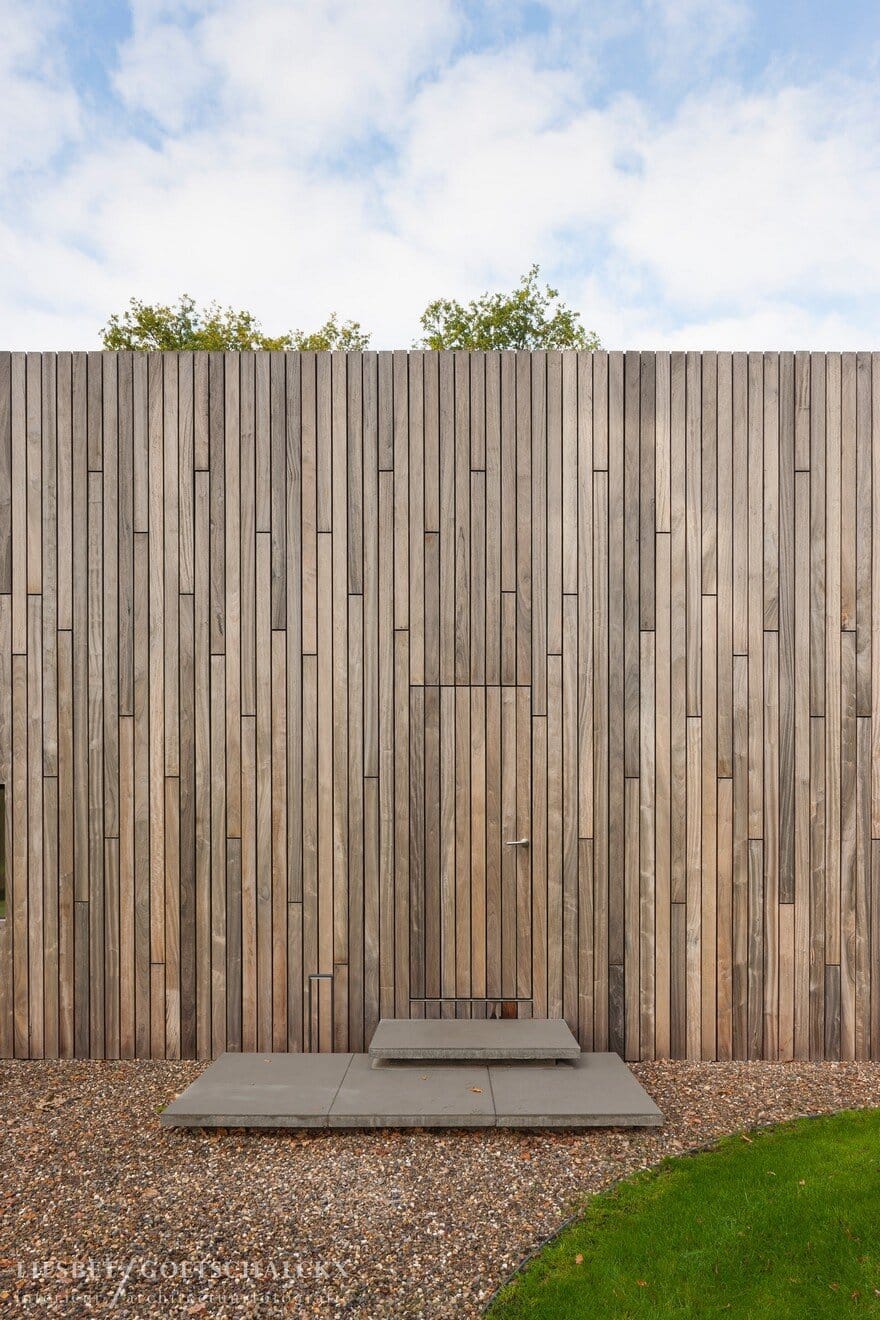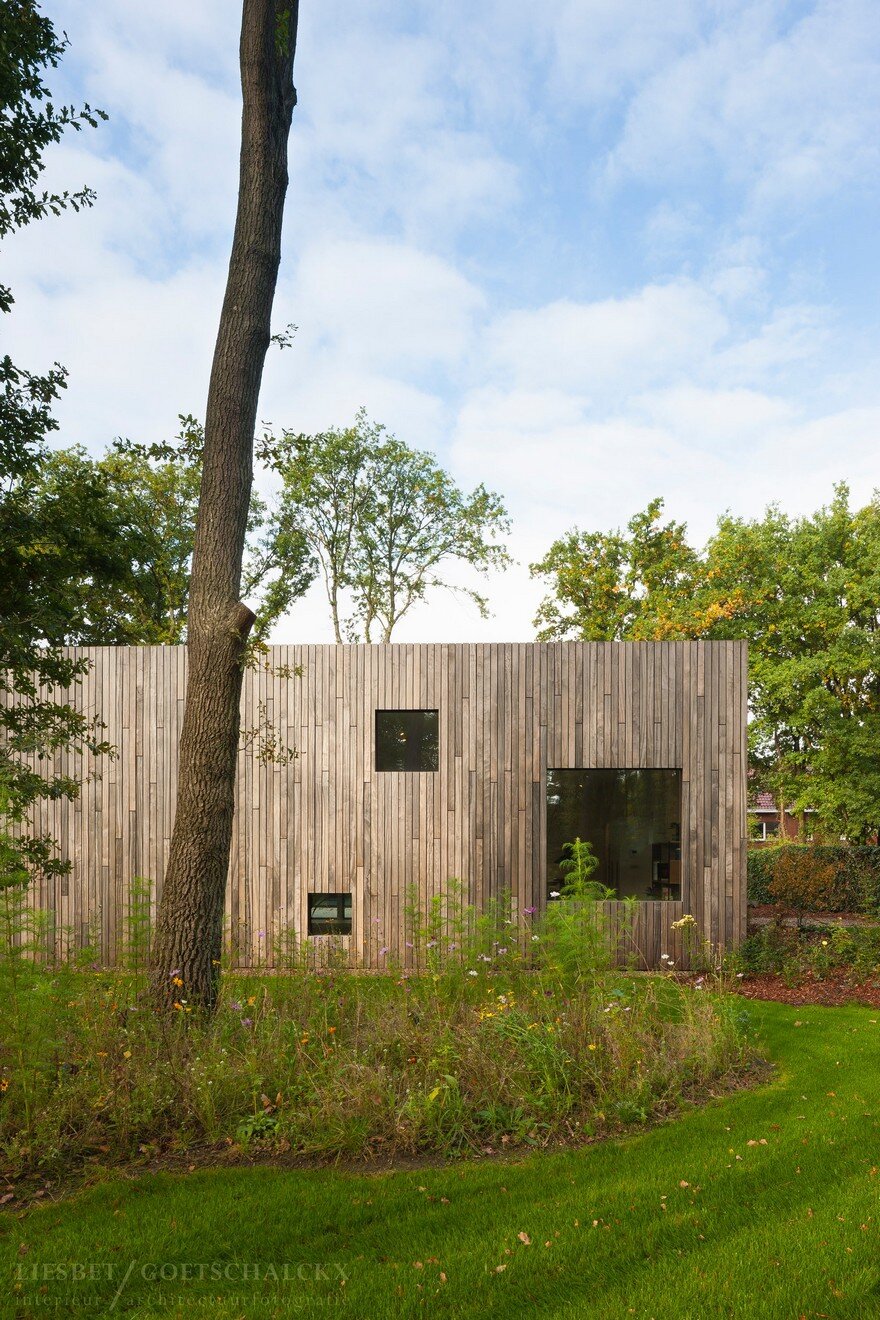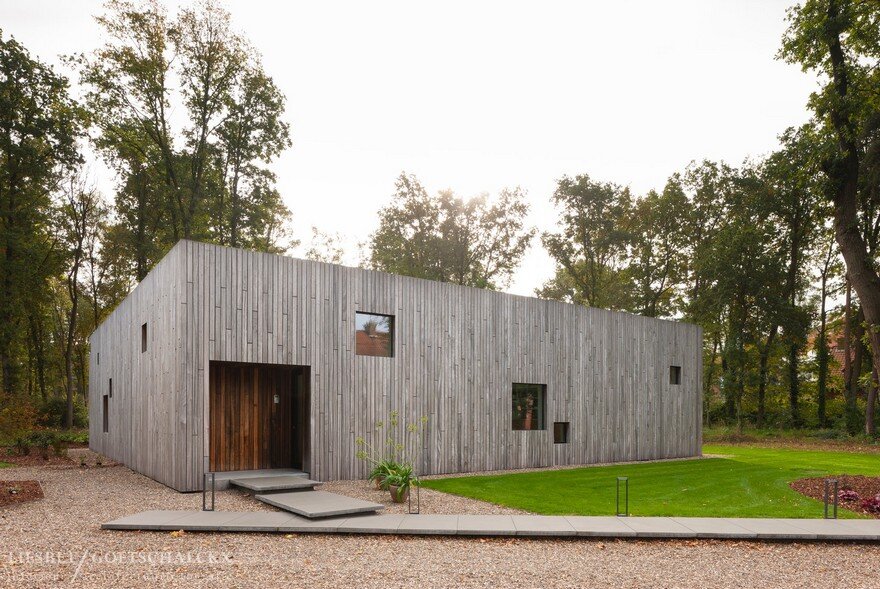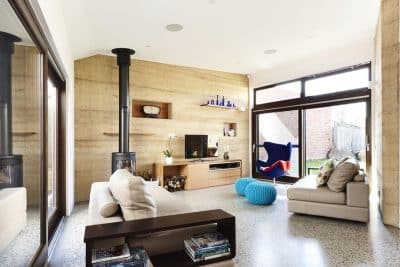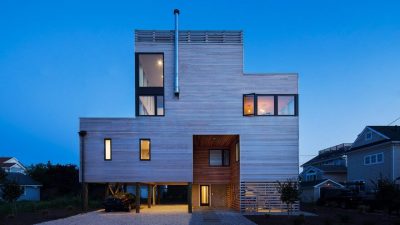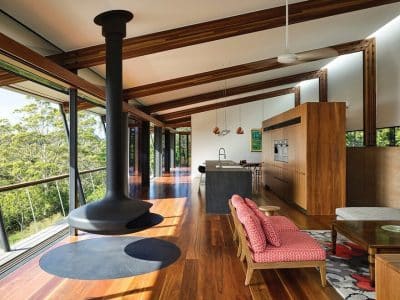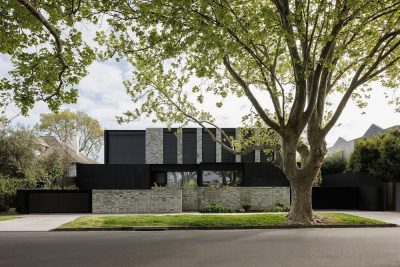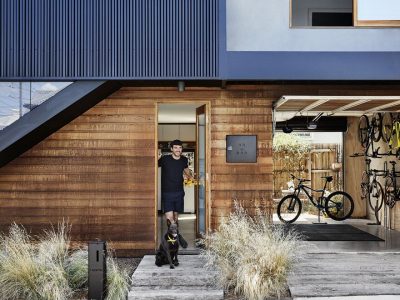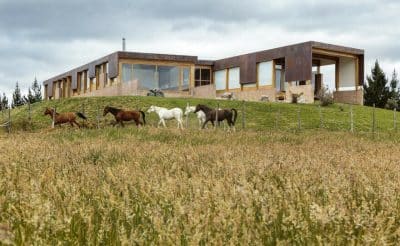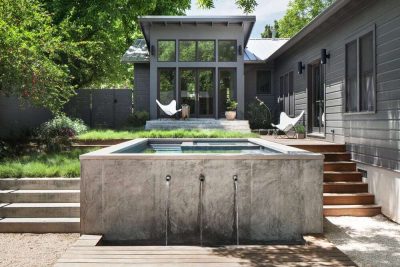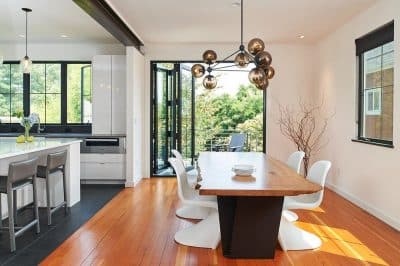Project: Square House
Architects: Cocoon Architecten
Location: Genk, Belgium
Year 2017
Photography: Liesbet Goetschalckx
Text by Cocoon Architecten
The site is located just inside the center of the city of Genk in the province of Limburg. The residents, a couple from Belgium and Japan, wanted a combination of living and working space close to the city, but in a peaceful oasis. So, we looked for a home that had two important qualities: a space that provided transparency, light and a sense of openness and at the same time enough privacy, so that intimate relationships between the residents could be fostered.
The way we accomplished this was by seeing the home as a volume around a central inner courtyard. The courtyard allows light to penetrate deep into the room and also provides a natural privacy screen. The volume is characterized on the outside by several square perforations. The openings in the wooden façade appear to be placed arbitrarily, but they provide the spaces behind them with a framed external view in strategically chosen places.
The volume gives a closed impression on the outside, but once inside, the completely glazed inner courtyard ensures that the home is flooded with light. This courtyard is used as a private patio that is concealed from the neighbors in the adjacent high-rise building.
Although from the outside the home appears to have a flat roof, the entire roof slopes towards the courtyard. The high, spacious ceilings that slope towards the courtyard make the rooms dynamic and your attention is drawn to far into the patio towards the opposite rooms.
The design includes height differences to define spaces. This makes the home very open and everyone’s presence there is felt, but at the same time also comfortably separated. One of the rooms is a contemporary interpretation of a Washitsu, a Japanese room, where old and new meet.
The environmental footprint of the Square house is very small. The structure is made of a wooden frame and cellulose insulation, which minimizes the CO2 emission of the construction. The materials used are largely natural. The specific roof enables invisible installation of solar panels and the home is heated with a heat pump. The windows are all wood-framed and triple-glazed and have balanced ventilation. A grapevine in the courtyard provides a lot of shade in the summer, which prevents overheating.

